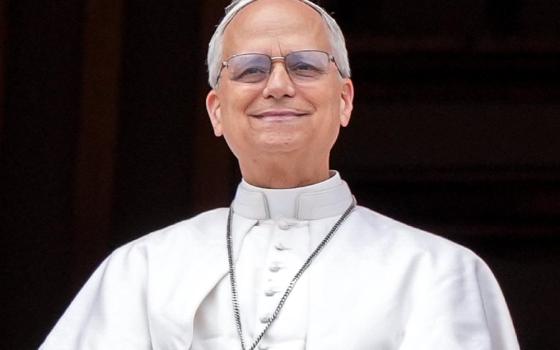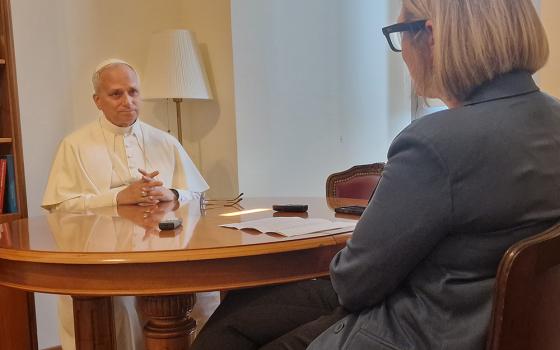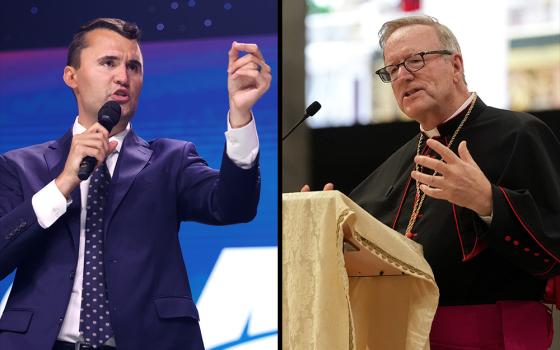
Following are NCR reader responses to recent news articles, opinion columns and theological essays with letters that have been edited for length and clarity.
Ministering to second-generation Haitians
I appreciated Renée Roden’s article highlighting issues that Haitian immigrants face (NCR, Aug. 12, 2025). These challenging times cause uncertainties, not only in Philly, Miami, or Newark, but in almost all Haitian ministries around the country.
As an immigrant educator with formal theological training, I was particularly moved by the phrase, "We are like Jesus." However, to remain effective, we must contextualize our mission around Jesus, the Rabbi, the teacher. Emphasizing Christ as the teacher par excellence will foster communication across disciplines and create opportunities for comprehensive multi-generational evangelization.
Haitian ministries in dioceses like Brooklyn and Boston have served faithfully for nearly sixty years. However, we cannot remain an "immigrant church" any longer. Our ministries must expand to meet the needs of professionals and U.S.-born Haitians who require deeper engagement with the faith, which popular devotions don't meet. In a society that highly values knowledge and learning, lifting up Jesus as the Rabbi will help bridge generational divides and foster discipleship.
Haitian ministries barely participated in the synodal process between 2021 and 2024. Bringing together several generations of minds, treasures, and talents through an emphasis on Jesus as the teacher that he is, is the path toward a synodal Church.
NEKITA LAMOUR
Boston, Massachusetts
***

The hierarchy and climate
I share Mr. Wright's concerns that climate change should have always been the pre-eminent issue for Catholic voters. (NCR, Aug. 13, 2025) More people are expected to die from the stronger storms, droughts, floods, fires, etc., which are directly attributable to a warming atmosphere. The fact that Trump is exacerbating the problem demands we hear arguments from our ecclesial leaders consistent with Laudato Si'.
Our domestic church, in my opinion, is struggling with several problems which affect the credibility of our bishops and priests. The loss of the Johnson Amendment and IRS-revised view that politics may embellish the homilies will only add to the problem. For a few decades a single issue, abortion, has been the exclusive topic for which the USCCB promotes voter involvement and voter choice. Coincidentally, that topic is no doubt the one which is marketed by the Republican Party since it has historically been the single most galvanic issue with which voters could be enticed to support electing Republicans. All the myriad issues facing the county which directly affect every voter are superseded by abortion.
There is no coincidence that the individuals who wish to effect Republican hegemony of our government use their considerable funds to support not just their party but also politically supportive institutions which can also benefit from their financial largesse. Since abortion arose as the one issue which our ecclesial leaders preach on to direct the attention of the voters in the congregation there has never been any challenge to their speech. However, now that politicizing the homilies is condoned, if not actually sanctioned, by the government, it will become interesting if other issues which impact all of us will be addressed. The conservatives who deny climate change are the same ones who underwrite the Republican Party and by extension the same individuals are influencing the church. Every business needs to manage its revenue stream so nothing will arise which will endanger funding for the church. In that vein Mr. Wright's arguments will fall upon deaf ears.
CHARLES LE GUERN
Granger, Indiana
***
Advertisement
Just war hypocrisy
It's great to see coverage of Cardinal Cupich's address advocating for nonviolence and diplomacy at the site of one of the greatest acts of violence in world history (NCR, Aug. 8, 2025). I hope we all, including the article's author, Mr. Winters, can continue to learn from this.
I think it's necessary to call out how in his editorialized response to the address, Mr. Winters claims: nonviolence should not take precedence over just war theory, but that they should "challenge each other in an uneasy tension." I fear that what he considers "uneasy tension" is rather an engagement in mental gymnastics to defend the status quo of rampant U.S.-sponsored militarism while claiming to want peace.
He argues that without just war theory, Ukraine would no longer exist. And he says nothing of Gaza. Gaza is soon to no longer exist, and it is happening right before our eyes. All the while, purported just war theorists, in favor of "proportionality", look the other way.
To be clear, I am not advocating for military intervention, but I've yet to meet a just war advocate who favors military intervention against Israel to stop their genocide of Palestinians. Nor do I hear the just war theorists clamoring to resist sending U.S. weapons to Israel (which is already illegal under both the Leahy Law and Section 620I of the Foreign Assistance Act).
Does this not make us hypocrites if we believe in just war or a nebulous "uneasy tension" approach?
We can do better than this. Nonviolently, of course.
CHRIS JESKE
Milwaukee, Wisconsin
***






